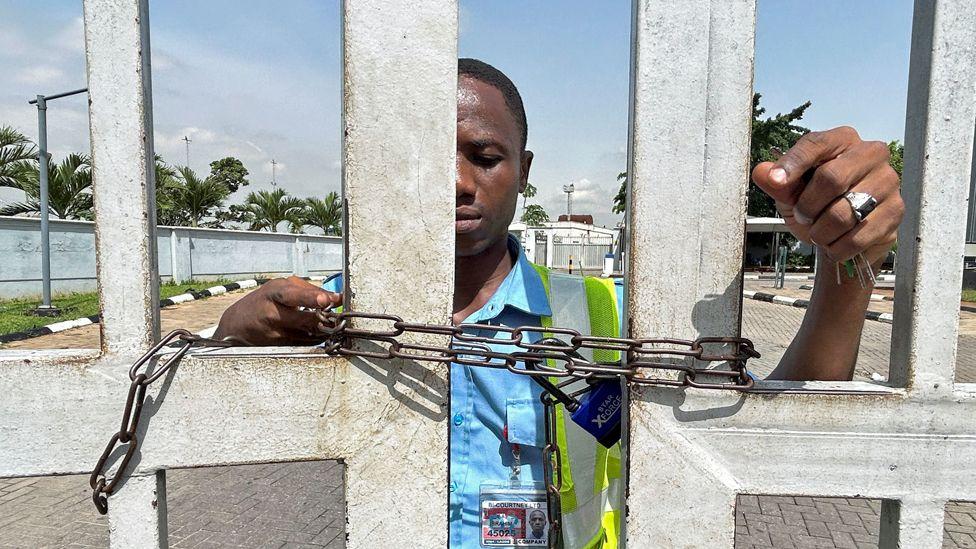Nigeria’s trade unions have actually suspended a basic strike by public sector employees that has actually brought financial activity to a stop today.
The choice follows the federal government guaranteed to increase the nationwide base pay to a minimum of 60,000 naira ($40, £32) a month.
This falls listed below the $330 that unions have actually been requiring, however is double the existing month-to-month wage.
The strike started on Monday and caused the shutdown of the nation’s power grid, leaving millions without electrical power.
Federal government and union agents state they will now satisfy every day for a week for more settlements.
A civil servant in the northern city of Kano informed the BBC he was dissatisfied by the deal, and desired a minimum of 100,000 naira ($67) a month.
“Even 100,000 naira won’t suffice as rates in the market have actually increased however it will be much better than what we have now,” stated Shittu Lawal, who operates in the info ministry in Kano.
“I invest 500 naira to get to work daily which is difficult, we will go back to work now and continue to promote more,” he included.
Early on Monday, the nation was plunged into darkness quickly after 02:00 regional time (01:00 GMT) when union members avoided operators at the nation’s power control spaces from working and closed electrical power substations.
Lots of flights were likewise cancelled in the nation’s busiest airport in Lagos, and in the capital, Abuja, with guests left stranded.
More BBC stories on Nigeria’s economy:
Power cut throughout Nigeria as employees go on strike
Is Nigeria on the best track after a year of Tinubu?
Nigeria expense of living: Individuals turn to ‘throw-away’ rice for food

Go to BBCAfrica.com for more news from the African continent.
Follow us on Twitter @BBCAfrica, on Facebook at BBC Africa or on Instagram at bbcafrica
